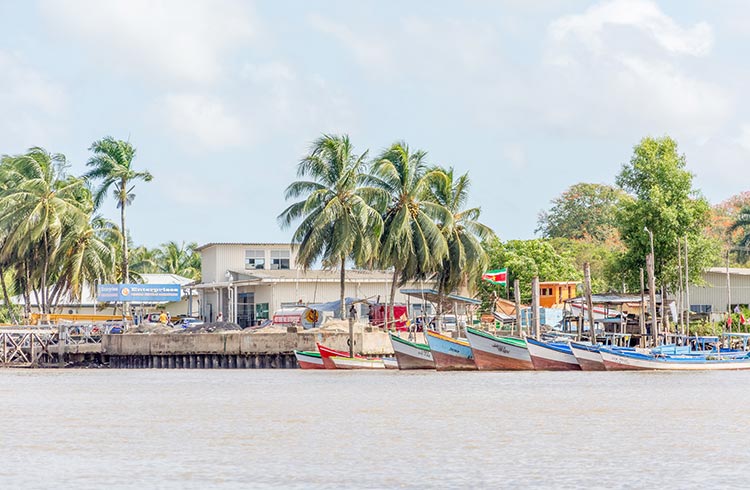How to Stay Healthy in Suriname
Can you drink the tap water in Suriname? What vaccinations do you need before you go? Find out how to travel without stomach troubles or mosquito bites with these health tips.
 Photo © Getty Images/Nazia Sheikrojan / EyeEm
Photo © Getty Images/Nazia Sheikrojan / EyeEm
- Can I drink tap water in Suriname?
- Medical facilities
- What vaccinations do I need for Suriname?
- Malaria in Suriname
- Listen to The World Nomads Podcast: Suriname
Can I drink tap water in Suriname?
The tap water is safe to drink in Paramaribo, the capital city of Suriname. Outside of Para the tap water is not safe to drink.
Instead of purchasing plastic bottles of water, carry water purification tablets, boil water (for at least one minute) before drinking, or take a water bottle that purifies water itself (such as Grayl).
Water-borne, food-borne and other infectious diseases (including hepatitis, typhoid, leptospirosis, schistosomiasis, tuberculosis and rabies) are prevalent here, with more serious outbreaks occurring from time to time. Avoid ice cubes and raw or undercooked food while traveling in Suriname. Seek medical advice if you have a fever or are suffering from diarrhea.
Health and medical facilities
Medical facilities in Suriname are limited. Doctors and hospitals usually require cash payment prior to providing services, including for emergency care. In the event of a serious illness or accident, medical evacuation to a location with suitable facilities would be necessary, and this is usually to the United States – which means huge medical bills!
Take medications with you to Suriname instead of relying on their availability in Suriname's pharmacies. Carry a letter from your doctor if you're concerned any medications might raise alarm bells with the customs officials outside your home country.
What vaccinations do I need for Suriname?
All travelers to Suriname require a Yellow Fever vaccination certificate. Keep this on you so you can show it to customs upon arrival.
Check with your doctor prior to your trip, but here are a few recommended vaccinations to get before traveling to Suriname:
- Hepatitis A and B
- Typhoid
- Meningococcus (Meningococcal infection)
- Rabies
- Booster shots for Measles, Mumps and Rubella (MMR) and Tetanus-Diphtheria (Tdap)
There is a high prevalence of HIV/AIDS, so if you are a victim of rape, you are strongly encouraged to seek immediate medical assistance.
Malaria and insect-borne diseases in Suriname
There is a high risk of malaria throughout the year in the interior of Suriname, and the area with the highest risk is along the eastern border and in gold mining areas. Chloroquine-resistant strains of malaria are prevalent. Other insect-borne diseases (including Dengue Fever, Yellow Fever, filariasis and leishmaniasis) are also a risk. Take all measures to avoid insect bites, including using insect repellent at all times, wearing long sleeves at dusk and dawn, and asking for a mosquito net if your accommodation has any open windows.
Listen to The World Nomads Podcast: Suriname
Related articles
Simple and flexible travel insurance
You can buy at home or while traveling, and claim online from anywhere in the world. With 150+ adventure activities covered and 24/7 emergency assistance.
Get a quote

No Comments